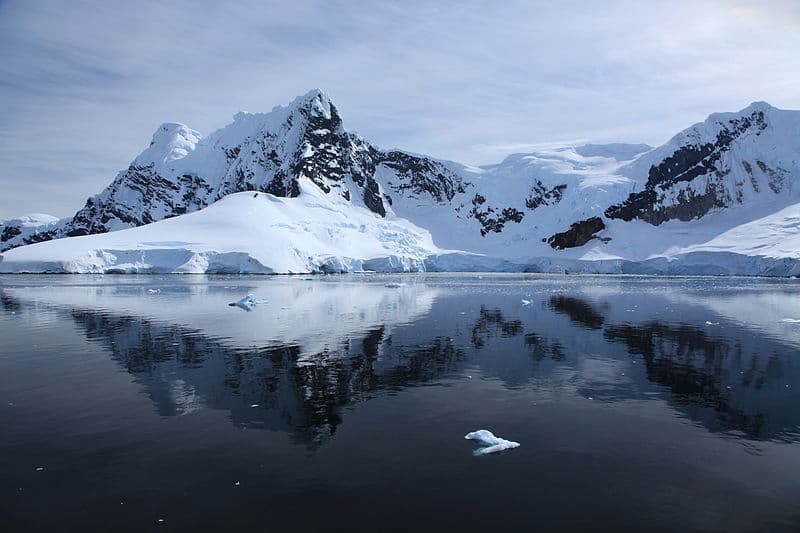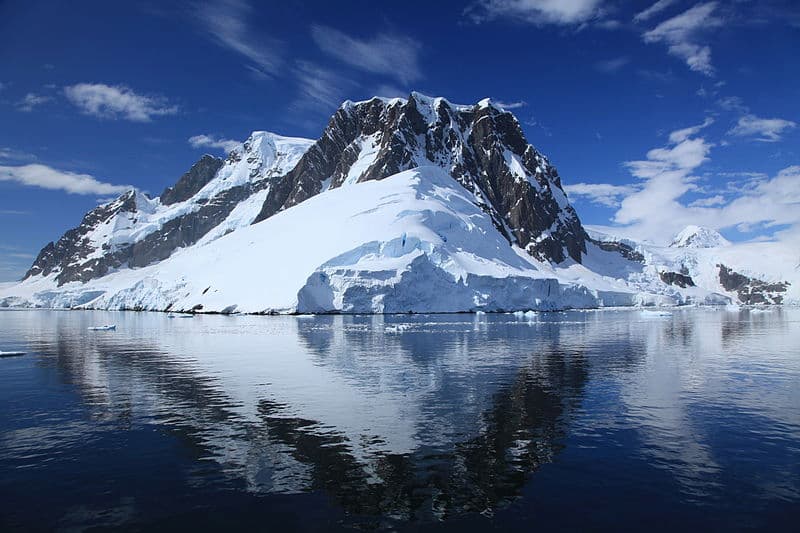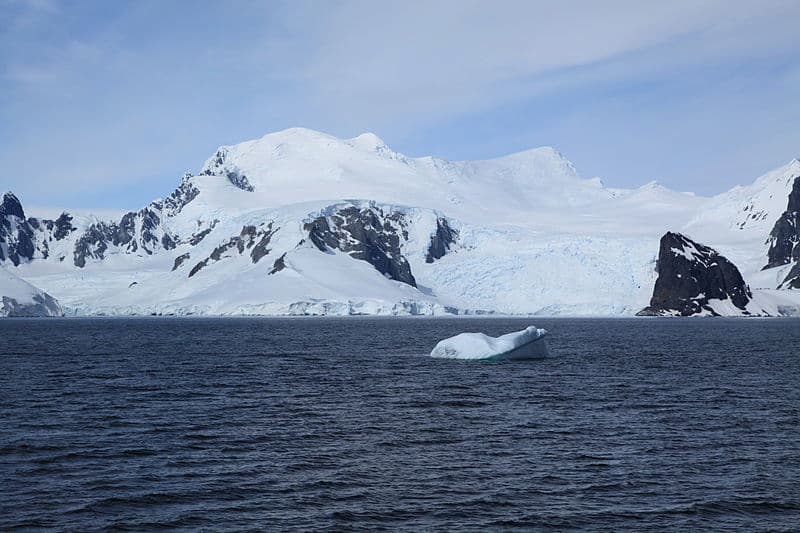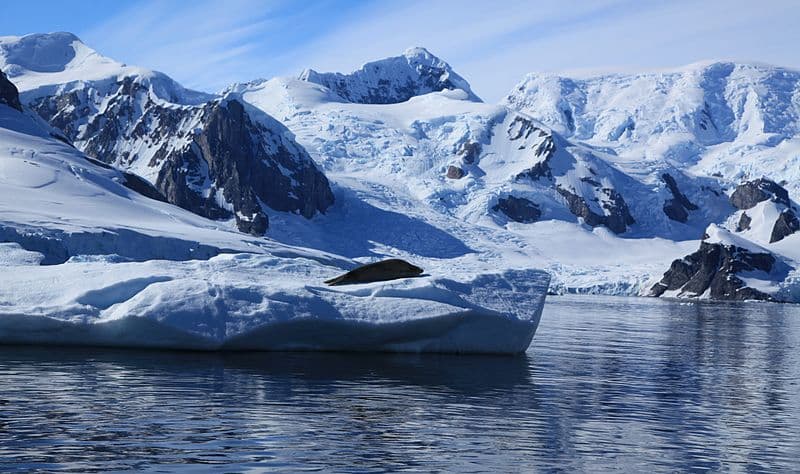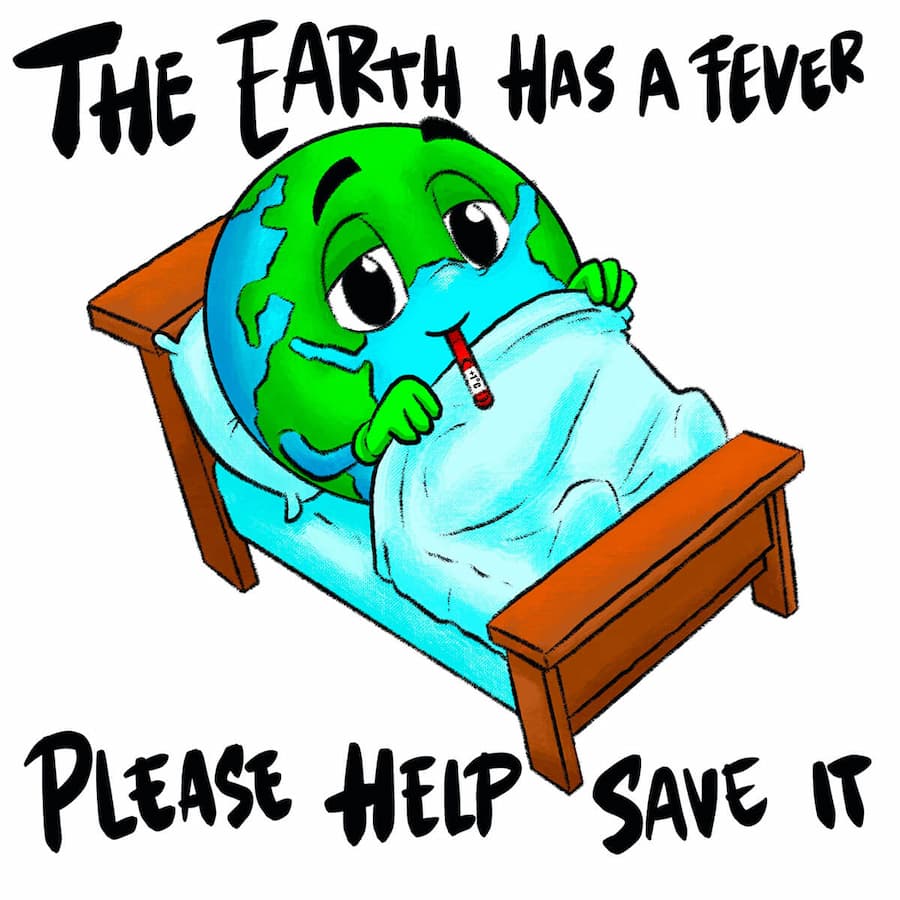Melting Polar Ice Caps
In the past, there has been a disinformation campaign about the melting polar ice caps.
There have been numerous articles stating that the melting of ice caps has been at a record low, but that still does not hide the truth that the polar ice caps are indeed melting and at an alarming rate.
"Ice mass loss is occurring at an accelerated rate in Greenland, Antarctica and globally from inland glaciers. Arctic sea ice is also falling at an accelerated rate. The exception to this ice loss is Antarctic sea ice which has been growing despite the warming Southern Ocean. This is due to local factors unique to the area" (Source).


Still Alarming
Even if the ice caps were to be melting slower than usual, this is not a sigh of relief in saying that all is well and that humans should ignore the melting polar ice caps along with all the many other effects of climate change.
In passing, many scientists are saying that on the contrary, the melting of the icecaps is, in fact, accelerating.
"The polar ice caps are melting six times faster than in the 1990s, according to the most complete analysis to date" (Source).
"The average annual loss of ice from Greenland and Antarctica in the 2010s was 475bn tonnes – six times greater than the 81bn tonnes a year lost in the 1990s. In total the two ice caps lost 6.4tn tonnes of ice from 1992 to 2017, with melting in Greenland responsible for 60% of that figure" (Source).
In any event, it is nonetheless a serious situation that deserves not only our attention but also the attention of the media, which will more often than not overlook this issue.

From The Climate Reality Project
Role of Ice in Regulating Global Temperatures
It is important to remember that ice sheets absorb a great deal of the sun's heat.
Ice caps also do their part in reflecting the sun’s rays, which keep the Earth cooler (referred to as albedo).
Without a decent reflective shield and solid heat absorption mechanism, the troposphere will further rise in temperature.
In essence, the melting of the polar ice caps will accelerate global warming, which will, in turn, cause more rapid melting.
This is one of the many feedback mechanisms that will accelerate abrupt climate change.
"Snow and ice have long played a vital role in moderating Earth's climate. The white surfaces reflect the sun's radiation, which in turn helps maintain a comfortable temperature for life on the planet. But with a warming planet, that ice melts or thins, exposing the dark water below, which absorbs that radiation. So each year the global temperature rises, melting more ice and snow. It's a positive feedback loop: warming causes ice melt, ice melt causes warming. And that process — also called Arctic amplification — leads to what we are observing now, which is a rapidly changing climate" (Source).

Rising Sea Levels
We need to be concerned about melting polar ice caps because of the rising sea levels, which will ensue.
It is simple science and logic; with excess water comes rising sea levels, which have the potential of swallowing islands and nations whole.
"Without rapid cuts to carbon emissions the analysis indicates there could be a rise in sea levels that would leave 400 million people exposed to coastal flooding each year by the end of the century" (Source).
Entire areas of major cities and large parts of continents have the potential of being submerged underwater if we do not get a handle on the driving factors behind the melting polar ice caps, namely the greenhouse effect.
"The IPCC’s most recent mid-range prediction for global sea level rise in 2100 is 53cm. But the new analysis suggests that if current trends continue the oceans will rise by an additional 17cm" (Source).
"About a third of the total sea level rise now comes from Greenland and Antarctic ice loss. Just under half comes from the thermal expansion of warming ocean water and a fifth from other smaller glaciers. But the latter sources are not accelerating, unlike in Greenland and Antarctica" (Source).

From The Climate Reality Project
Rapid Melting in the Arctic
According to NASA, "Arctic sea ice reaches its minimum each September. September Arctic sea ice is now declining at a rate of 12.85 percent per decade, relative to the 1981 to 2010 average" (Source).
There are some very worrying trends going on. An article from the Washington Post written in December 2018 states, "Over the past three decades of global warming, the oldest and thickest ice in the Arctic has declined by a stunning 95 percent, according [to] the National Oceanic and Atmospheric Administration’s annual Arctic Report Card" (Source).
Don Perovich, a scientist at Dartmouth, stated, “The younger the ice, the thinner the ice, the easier it is to go away” (Source).
“The Arctic is an indication of what’s coming to the rest of the globe,” conveyed Walt Meier, a sea ice expert from the National Snow and Ice Data Center. “In the Arctic Ocean, a difference of 2 degrees can be huge. If it goes from 31 Fahrenheit to 33 Fahrenheit, you’re going from ice skating to swimming. … the Arctic is an early warning system for the climate” (Source).
"If the Arctic begins to experience entirely ice-free summers, scientists say, the planet will warm even more, as the dark ocean water absorbs large amounts of solar heating that used to be deflected by the cover of ice" (Source).
In an article from the CBC published on Sep 25, 2019, it states, "The Intergovernmental Panel on Climate Change (IPCC) Special Report on the Ocean and Cryosphere in a Changing Climate, released Wednesday, suggests that we could see an ice-free Arctic once every 100 years if we limit warming to 1.5 C above pre-industrial levels. If we warm to 2 C, that would increase to once every three years" (Source).

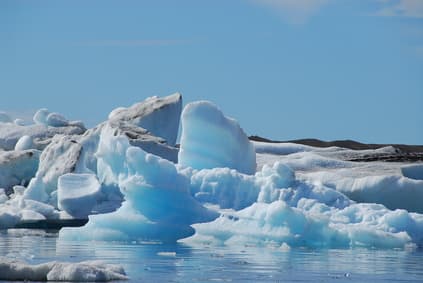
Areas Affected
Some of the world's largest cities, such as Shanghai, could be significantly affected by rising sea levels. Rising sea levels will also affect cities such as Miami, Osaka, Alexandria, and Rio de Janeiro (Source).
Also, island countries such as the Maldives would be one of the first nations to be swallowed up whole along with parts of the United States, mainly around the gulf coast region.
Additionally, any city or region in the world that is below sea level will see a drastic rise in floods.

Other Effects
There is the wildlife factor as well.
Polar bears are losing their habitats across the glacier regions, and many are drowning as a result of the excessive floodwaters. Climate change will also affect other species, including the ringed seal and well-known species like the beluga whale, arctic fox, koala and emperor penguin (Source).
This has severe implications for marine life that dwell in the Arctic and Antarctic along with other animals such as the walrus.
Ultimately, the melting ice caps could render many marine and land mammal species extinct.
At a time when so many other animal species on Earth are already facing extinction, it is important to preserve any animal’s habitat wherever possible.
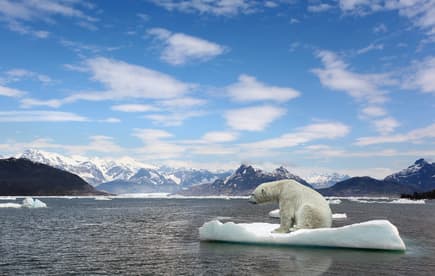
Our Duty to Spread Awareness About the Melting Polar Ice Caps
Clearly, we have to do our part each and every day to make sure we are reducing our impact on global warming by decreasing our greenhouse gas emissions.
We must get to the root of the problem by trying to find new solutions to help stop climate change.
Nowadays, factors such as pollution and the increasing carbon dioxide levels must always be considered if we are to solve the climate crisis.
Besides, scientific study, as well as innovation in green technology, is required to preserve the polar ice caps for the sake of all life within the biosphere.
It is crucial that we do not underestimate the gravity of the situation and that we do not give heed to disinformation regarding this predicament bestowed upon us that will in one way or another, affect all life on Earth.
In addition to the melting of the polar ice caps, glaciers are melting around the world. It is time for us to spread awareness before it is too late.


Further Reading and Sources
- Skeptical Science Article on Global Ice Melt
- The Guardian Article on Polar Ice Caps Melting
- The Guardian Article on Sea Level Rise
- NASA
- CBC Article
- Washington Post
- Scientific American

Join the Community and Newsletter (5000 Subscribers)
You can subscribe to my Substack Page or see the archives of previous posts. More great content coming soon!
Recent Articles
-
Climate Change Guide
Apr 23, 24 12:36 PM
The Climate Change Guide is your guide to a more sustainable future, and will provide you with all relevant information on mankind's greatest challenge. -
Climate Presentations by Climate Reality
Mar 03, 24 12:17 AM
You can see great climate presentations by Climate Reality. They can be customized for different audiences. -
Make the Planet Great Again!
Mar 02, 24 11:33 PM
We need to make the planet great again! We will build a solar wall along the Mexican border and make the fossil fuel industry pay for it! -
Historical Climate Change News
Mar 02, 24 11:25 PM
This section includes historical climate change news you should know about. These articles span several different topics and will help you stay up-to-date.
